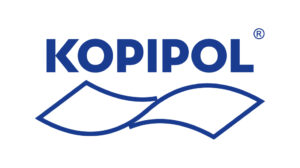Rethinking Expropriation Law
11-12 th September 2025
Kraków, Poland


Dear Colleagues,
-
About the conference
-
Programme
-
Important dates
-
Abstract submission and registration
-
Fee
-
Accommodation
-
Location
-
Organizers
-
Scientific and Organizing Committees
- Patronage
- Sponsors
-
Contact
- Information about Krakow
Rethinking Expropriation Law 2025
Expropriation in times of disruption
11-12 September 2025
The 7th conference on Expropriation Law, hosted in Krakow by the University of Silesia (Katowice) and the Krakow University of Economics, in collaboration with the University of Groningen, the University of Cape Town, the University of the Witwatersrand (Johannesburg), and the Radboud University (Nijmegen) invites you to rethink and explore legal, economic and social considerations of expropriation.
In current times, expropriation demands an analysis in the context of various disruptive factors influencing property rights. These include, but are not limited to, political and social unrest, unresolved land ownership controversies resulting from historical injustices (colonialism, apartheid, forced displacement of populations, wars, armed conflicts, etc.), climate change and extreme weather events threatening the possibility to continue existing land uses, growing difficulties in accessing ownership or affordable rentals, which encourage governments to introduce restrictive regulation of ownership in residential real estate, increased nuisance form public infrastructure (roads, railroads, airports, wind farms), and problematic real estate appraisal in private and expert witness valuations, also for statutory purposes.
Viewing expropriation through the lens of disruptive phenomena is essential to understand the challenges and opportunities in employing this institution to resolve important social and economic problems. Rethinking expropriation law demands a responsible approach to reconciling private and public interests. It also requires contemplating how the expropriation process is managed and governed by public authorities. Thus, the organizers of the conference hope to explore the following aspects of expropriation, with the aim of considering them in a complex setting of: property rights, disruptive events, new or developing social and economic challenges, valuation difficulties, and adequately shaping both private and public law provisions (substantive and procedural) regulating expropriation.
TOPICS
Social and political disruption.
Political and social unrest, unresolved land ownership controversies resulting from historical injustices, such as colonialism, apartheid, forced displacement of populations, wars, or armed conflicts are necessarily connected with expropriation, whether factual or exercised as a power of the state. As past harms are being addressed and new political or social conflicts emerge, expropriation becomes an important tool to balance public and private interests. It is necessary to evaluate governmental activity in utilizing expropriation, with attention paid to governance, procedure, the protected public interest, and just compensation. It is also the context in which land grabs and similar activities of a government in territories of other sovereign states should be evaluated.
Precariousness due to disruption through climate change.
Continuing the theme of the 6th conference on Expropriation Law (Groningen 2022), it is imperative to discuss expropriation in the context of landed property that has become precarious due to its repetitive or reasonably expected exposure to extreme weather events caused by climate change. Expropriation becomes an important element of deliberations regarding the state’s responsibility to provide an alternative to owners and occupiers of land already affected or at risk of being damaged or destroyed. It is of paramount importance to understand how adequately designed and executed expropriation, connected with land use planning, will allow to create more resilient societies.
Disruption of property rights caused by unaffordable housing
Housing is becoming increasingly unaffordable all over the world, Europe being no exception, and governments are struggling with devising adequate housing policies. In the process of attempting to increase the supply of housing and making it more affordable, various instruments are being utilized, such as: regulated rents, taxes on vacant residential units, bans/restrictions on short-term rentals, protection of squatters, restrictions on evictions. These measures may be viewed through the lens of expropriation, since they often lead to an extreme limitation of private ownership. If so, it is essential to understand if the mentioned forms of state intervention amount to an expropriating interference with property that demands just compensation and whether such legal instruments meet the requirements of Article 1 of the First Protocol (the property clause, A1P1) to the European Convention on Human Rights. The balancing of property rights and the right to housing requires careful consideration.
Disruption through nuisance from public infrastructure
Expropriation is mainly associated with the complete loss of ownership, but it also concerns instances of limiting property entitlements by various means, like introducing restricted use areas (vicinity of airports, roads, railways, production plants) which may significantly curtail the right of ownership. In addition, it may be argued that nuisance caused by the operation of public works effectively deprives land of its value, making it unmarketable, or significantly reduces that value. In such situations, even when no formal use restrictions have been introduced, it may be argued that expropriation has occurred and compensation is required. This requires a thorough analysis of when de facto expropriation has taken place, whether expropriation will resolve problems of onerous, neighboring public infrastructure and to what extent is the value of real estate a legally protected asset. Valuation problems also arise, since calculating loss of value requires identifying the value of land in a hypothetical state, in which no nuisance is present.
Disruption in valuation practice and assumptions – requirements of statutory valuation and valuations in court proceedings
The connection between legal provisions defining (in various degrees of specificity) the bases of calculating compensation and the actual economic methodology as well as the underlying economic assumptions employed by real estate valuers are issues inextricably connected with expropriation. To this end, appraisals for statutory purposes, such as: expropriation, property degradation, compensation of property restrictions, may pose valuation challenges due to specific assumptions that the legislator imposes. In addition, bearing in mind the dependence of courts and administrative bodies on valuations, it is essential to understand when valuations meet the criteria of admissibility, sufficiency, and credibility in order to prevent junk science from being the basis of legally binding decisions. This also demands an evaluation of principles governing the valuation profession and whether its regulation ensures impartial valuations.
We therefore welcome suggestions for special sessions, such as:
- Obligations to reduce emissions and expropriations in the interest of combatting climate change
- expropriation of property vs. transformative regime changes and the issue of compensation (e.g. changes in the ownership of minerals)
- compensating expropriation designed to achieve social reform (e.g. in the context of political transformation in Central and Eastern Europe, the Republic of South Africa)
- expropriation as a means to implement housing policies
- real estate value loss or diminution as expropriation,
- the valuer as an expert witness in statutory valuations
The final programme is posted below.
Programme – expropriation2025krakow
Important dates:
31 March 2025 – deadline for abstract submissions and completing the registration form
15 April 2025 – notification of abstract acceptance
30 April 2025 – deadline for conference fee payment (regular fee)
30 June 2025 – deadline for conference fee payment (late fee)
11-12 Sept. 2025 – conference dates
15 Nov. 2025 – deadline for submitting the full paper
To register and submit an abstract see link or QR code below
All participants are asked to register. The registration form allows to specify whether you are submitting an abstract or wish to attend without presenting.
Abstract submission is through the registration form. Abstracts should be between 300-400 words, including title of presentation.
Link: https://forms.office.com/e/x5xQWX7ucG

The payment acceptance process has started
Regular fee, 190 EUR – payable until 30 April 2025
Late fee, 240 EUR – payable until 30 June 2025
The organizers are in the process of seeking sponsorship for conference costs and will inform participants if financing to assist in covering conference expenses becomes available
The conference fee should be transferred to the following account:
ALIOR BANK SA
bank account number: 19 2490 0005 0000 4600 4637 5105
IBAN: PL 19 2490 0005 0000 4600 4637 5105
SWIFT: ALBPPLPW
Title of bank transfer: participant name and surname_expropriation2025
Uniwersytet Ekonomiczny w Krakowie
ul. Rakowicka 27
31-510 Kraków, Polska
Dear Colleagues,
For your convenience, we have selected a list of recommended hotels located near the conference venue. These accommodations offer excellent services and easy access to the event location.
Recommended Hotels:
Hotels Near the Cracow University of Economics (5-minute walk):
Radisson RED Hotel & Radisson RED Apartments Krakow
Hotels Near the Train Station (Dworzec Główny PKP, 10-minute walk):
Hotel Polonia
Vienna House by Wyndham Andel’s Krakow
Link to Vienna House by Wyndham
Attention, guests who invoke by e-mail the password: Expropriation 2025 will receive a discount: 10 % off the price of the day at the Andel’s Hotel at 3 Pawia Street (please make reservations at: (reservation.andels-cracow@hrg-hotels.com)
PURO Hotel
MERCURE Hotel
IBIS Budget Hotel
Other Hotels (More than 15-minute walk):
Vienna House Easy by Wyndham Krakow
Attention, guests who invoke by e-mail the password: Expropriation 2025 will receive a discount: 15 % off the price of the day at Hotel Easy Przy Rondzie 2 (please make reservations at: (reservation.easy-cracow@hrg-hotels.com)
We encourage you to book your flights and make hotel reservations as early as possible. Krakow is a popular tourist destination and September is still a month within high season.
Getting to Krakow:
By Air
International travellers should fly to Krakow Balice Airport (KRK). The airport is well-connected to the city centre by train, which runs directly to the main railway station. The journey takes approximately 25 minutes. Train tickets may be bought at machines located on the train platform.
By Taxi
Taxis are available from the airport at an approximate cost of 150 PLN (around 35 EUR).
Conference Venue
The conference will take place at the University of Economics in Krakow.
Address:
Rakowicka 27 Street
Building G, Rooms 12 and 13, see map below.
Organizers:
Krakow University of Economics


University of Silesia in Katowice, Faculty of Law and Administration


Cooperating partners
The Radboud University of Nijmegen

University of Cape Town
![]()
University of Groningen

University of The Witwatersbrand Johannesburg

Scientific Committee:
Prof. US Dr. hab. Magdalena Habdas (University of Silesia, Katowice)
Prof. Dr. Björn Hoops (University of Groningen)
Prof. Dr. Ernst J Marais (University of the Witwatersrand, Johannesburg)
Prof. UEK Dr. hab. Bartłomiej Marona (Krakow University of Economics)
Dr. hab. Grzegorz Matusik (University of Silesia, Katowice)
Prof. Dr. Hanri Mostert (University of Cape Town)
Prof. Dr. Jacques Sluysmans (Radboud University, Nijmegen)
Prof. Dr. Leon Verstappen (University of Groningen)
Organizing Committee
Prof. UŚ Dr. hab. Magdalena Habdas (University of Silesia, Katowice) – Chair
Prof. UEK Dr. hab. Bartłomiej Marona (Krakow University of Economics) – Chair
Dr Katarzyna Kamińska (University of Silesia, Katowice) – member
Dr Ewa Gorlecka-Łabiak (Krakow University of Economics) – member
MA Klaudia Tomasik (Krakow University of Economics) – member
MA Martyna Kowalik (Krakow University of Economics) – member
Honorary patronage for the event will be provided by:
The Rector of the Krakow University of Economics, dr hab. prof. UEK Bernard Ziębicki
The conference was included in the celebrations of the 100th anniversary of the KUE

Rector of the University of Silesia in Katowice, prof. dr hab. Ryszard Koziołek

Mayor of the City of Krakow, dr Aleksander Miszalski

Media patronage for the conference will be provided by:
Portal „Magiczny Kraków”

TVP 3 Kraków

Main sponsors
Kopipol

Polish Association of Developers

The Katowice Bar Association of Attorneys-at-Law

The Polish National Council of Notaries

If you have any queries or wish to contact us, please use the following email address:
e-mail: expropriation2025@uek.krakow.pl
Krakow – due to its demographic, economic, social and scientific-cultural strength – ranks second in Poland among cities. It has unique values that are the basis of its economic development and an increase in the quality of life. It has high-quality human capital at its disposal. It is a city people consciously choose as a place to live, work, study, spend free time in a variety of ways. Sustainable development and the ability to meet specific challenges with the skillful use of own resources are the main priorities.
The academic center, with its 650 year old University , is permanently connected with the city and builds an unrepeated resource of knowledge in a unique way. It is the key to competitiveness and innovation not only of Krakow, but also of the entire region. The intensively developing economy based on knowledge is a completely new process in the economic life of the City, which makes it part of the modern economies of the world.
The overriding goal for Krakow is not only to be a modern city but also to be proud of its historical heritage. It aspires to be an open, rich, friendly and safe metropolis, vibrant with culture. Smart management and strengthening the sphere of modern services and the research and development sector are the foundations for the development of Krakow – a city where innovation and effective cooperation between science and business are the focus.
We invite you to visit our website and learn about the possibilities offered by magical Krakow – rooted in tradition, sensitive to everyday life and open to development: www.dlabiznesu.krakow.pl
https://www.facebook.com/BiznesiNaukawKrakowie
Videos about Krakow:
#KrakowTheHostCity 2.41 https://vimeo.com/483511410
#KrakowTheHostCity 0.47 https://vimeo.com/491162213/132c632a79
#KrakowExperience 1.36 https://vimeo.com/486373523/64f83f10ef
#KrakowExperience 0.43 https://vimeo.com/493393432/d06a6a7d2e
 Fot. Piotr Krochmal
Fot. Piotr Krochmal
 Fot. Piotr Krochmal
Fot. Piotr Krochmal
